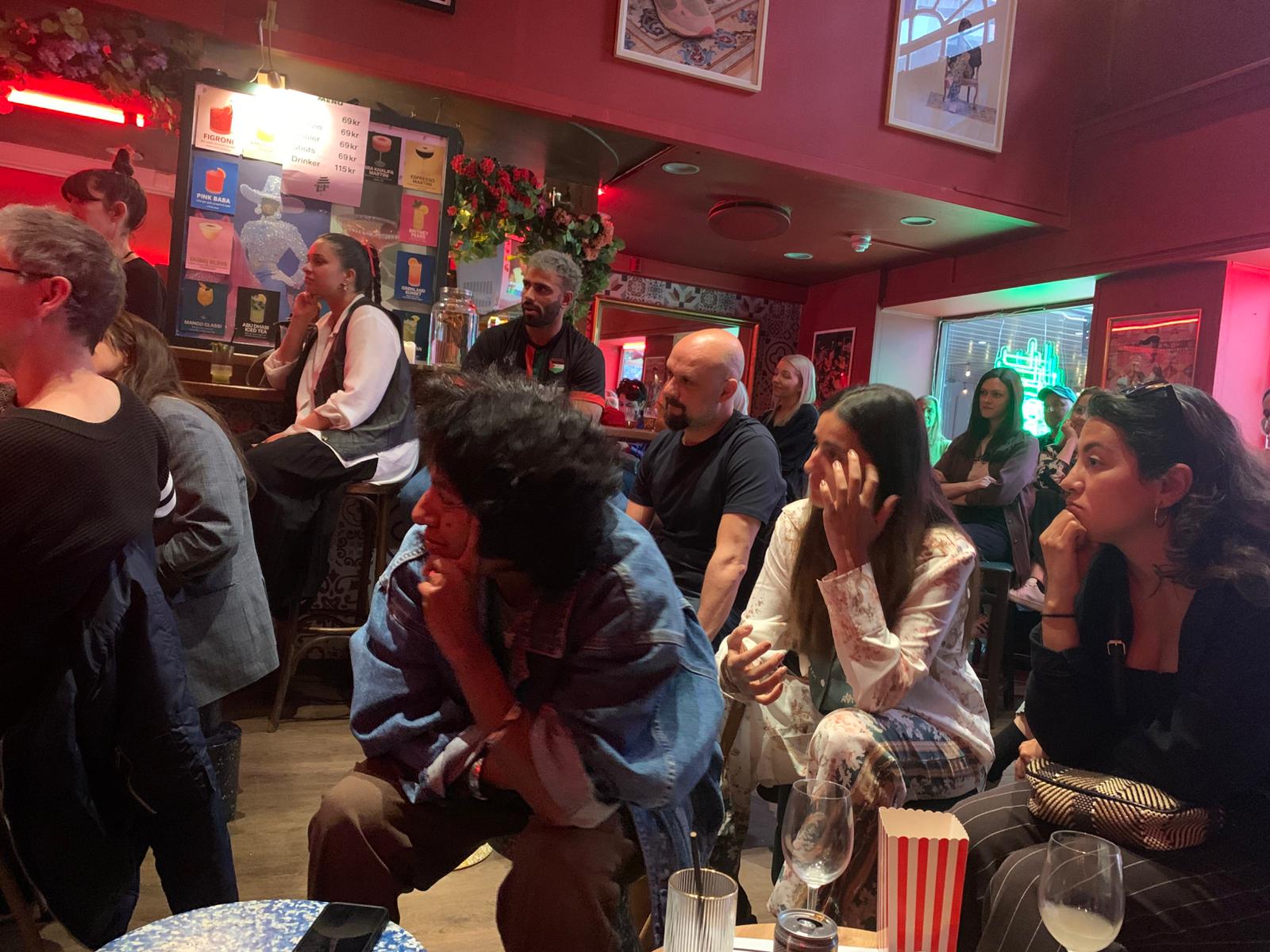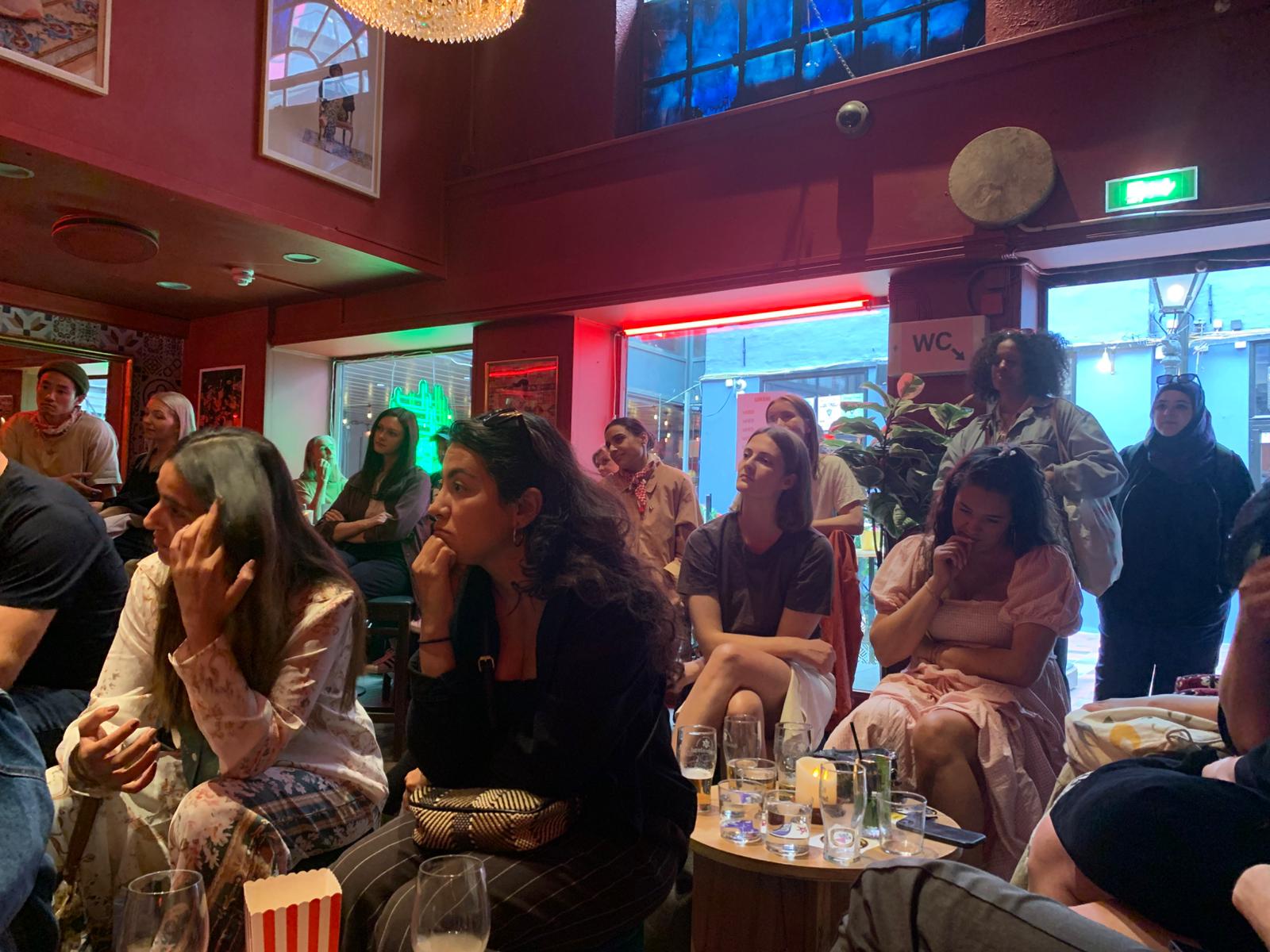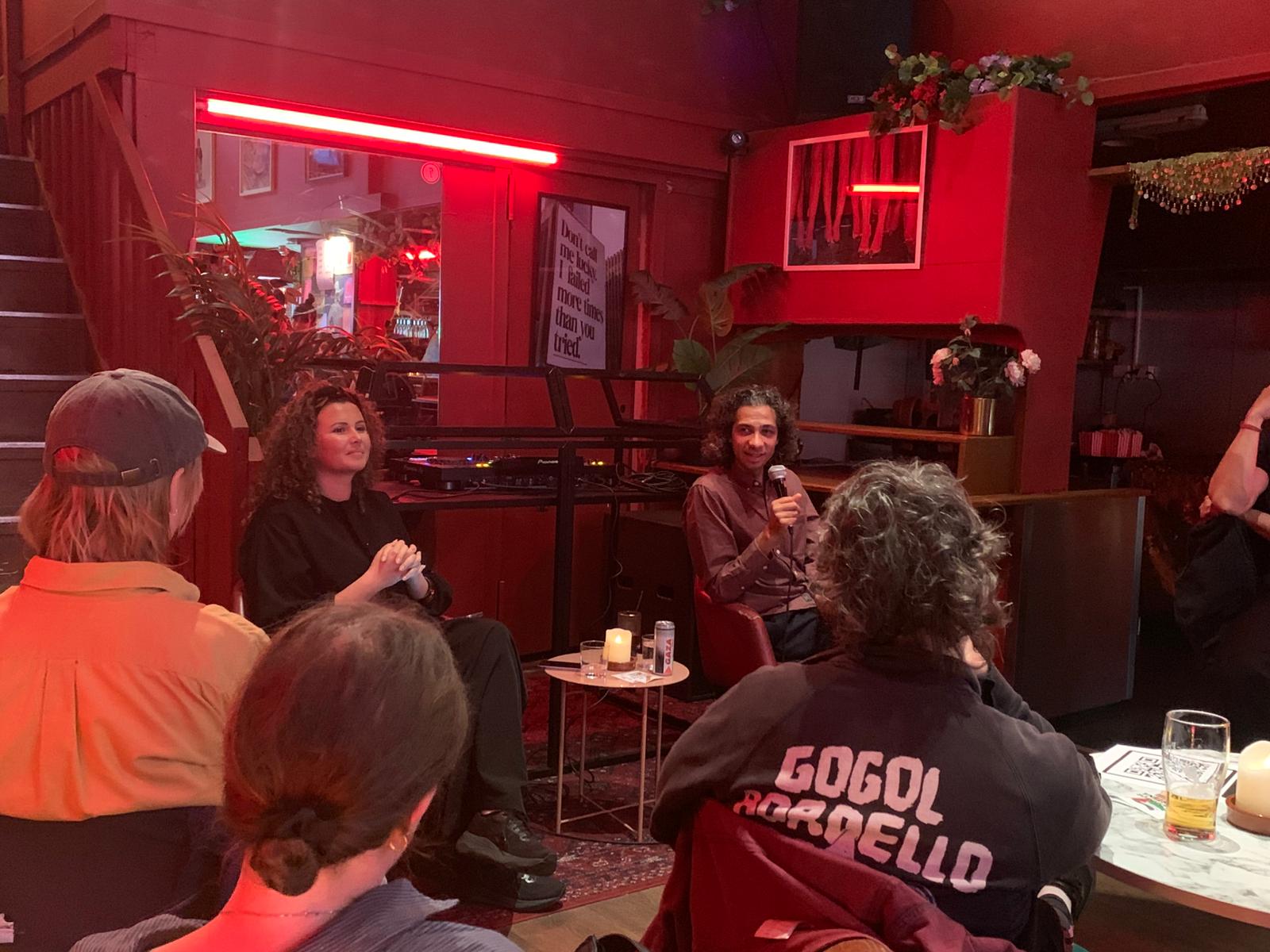“Raid on My Bookstore was Not Just an Attack on a Bookstore, But on Palestinian Identity,” Ahmad Muna
PEN Norway met Palestinian bookseller Ahmad Muna during his week’s visit to Oslo. He spoke about how Israeli police raided his family-run bookshop in East Jerusalem in February.
Ahmad Muna, a Palestinian bookseller from East Jerusalem, did not expect to become a viral headline. But on 9 February, everything changed.
That afternoon, plainclothes Israeli police officers raided both branches of the Educational Bookshop in East Jerusalem, one Arabic, one English, simultaneously. Co-owner Mahmoud Muna and his nephew Ahmad were detained, and over 1,800 titles were searched. Dozens of books were confiscated, some reportedly for containing the word “Palestine” or for showing the Palestinian flag. Children’s coloring books and even Haaretz newspaper issues were taken.
“The police offices could not understand Arabic or English, which is why they used Google Translate to decide which books to take,” Ahmad recalled.
If a book had a flag or certain words like Palestine or Hamas, they put it aside. The rest they threw on the floor
The Educational Bookshop has been a cornerstone of Palestinian cultural life for 4-decades. “I didn’t open the bookshop myself but grew up in it. I spend more time there than I do at home,” Ahmad said.
For Ahmad, the February raid was more than a violation of his store.
It was an attack on freedom of speech, yes, but also an attack on Palestinian culture, Palestinian identity, and our right to tell our own stories.
“It was an attack on freedom of speech, yes, but also an attack on Palestinian culture, Palestinian identity, and our right to tell our own stories.”
During the raid, one officer picked up Israeli Haaretz newspaper, which on that day had featured Israeli hostages being released by Hamas. The officer who couldn’t understand English said: “Oh, you promote Hamas and sell Hamas newspapers.’”
After a two-and-a-half-hour search, the officers stuffed books into black rubbish bags. Ahmad offered boxes to the officers to protect the books as it was raining outside, but officers ignored his offer.
Blindfolded and Taken to Prison
Ahmad and his uncle Mahmoud Muna were arrested, then blindfolded and taken to a prison, where they were made to stand against a large Israeli flag for several hours.
“Later we were told the books incited violence and terrorism. We were also asked why we had two shops. They didn’t understand the difference between Arabic and English collections.”
However, after several hours of interrogation, no evidence of incitement or terrorism was found. Therefore, the police sought to hold Ahmad and his uncle on charges of “disrupting public order.” Ahmad was placed in a concrete cell, where he had to spend his night on a stone slab. His uncle was held with eight other detainees in an overcrowded prison cell.
“In the morning, the Israeli security forces requested the court for eight days remand to investigate the books, Ahmad and his uncle. But the judge granted them 24 hours. That day, our lawyer appealed against the decision. We were brought back to a higher court as our appeal was accepted. The higher court ruled the police acted illegally by raiding the shops. Still, we were treated like we were guilty until proven innocent,”

The cost of release
Ahmad and his uncle had to pay a huge sum: €500 bail, and €1,300 each in fines. Ahmad was placed under five days of house arrest, barred from visiting the shop for 20 days and forbidden to contact Mahmoud.
Ahmad recently travelled to Oslo, via Paris and Tel Aviv, where in Paris he attended a French government conference promoting a Palestinian two-state solution. On June 19, he sat at a café in Oslo what he called his community.
“I spent my whole day in a library in Oslo,” he said. “I felt like I was home, free, open, surrounded by books. This is a privilege. I wish we had something like this in Palestine.” His advice to his friend was: “Do not take Libraries for granted.”
Bookstores More Than a Store
For Ahmad, his two bookstores are more than a store. It’s a cultural archive, a public square, and a space of resistance.
“When our bookstores were raided, everyone said it was an attack on freedom of speech, freedom of expression, academic freedom, and freedom of books, which is correct. But at the same time, it was also an attack on Palestinian culture. It was an attack on Palestinian cultural institutions. It was an attack on Palestinianism. It was attack on Palestinian identity.”






